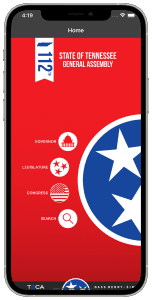Vanderbilt University, Tennessee Valley Authority (TVA), Nashville Electric Service (NES), Duck River Electric Membership Corporation (DREMC), and Silicon Ranch Corporation broke ground today on a new solar farm that is now under construction in Bedford County, Tennessee. The 35-megawatt (MWAC) Vanderbilt I Solar Farm is expected to begin producing power before the end of 2022, bringing new renewable generation to the Tennessee Valley.
Originally announced in January 2020, the partnership was the first of its kind under TVA’s nationally-recognized Green Invest Program, which matches demand for green power from diverse business, industrial and organizational customers with new utility-scale solar projects located within the Valley. The award-winning renewable energy program offers customers an effective, timely, and cost-competitive solution to meet their sustainability goals in a way that benefits the broader community.
“Today marks a milestone for the Tennessee Valley as we break ground on the first project ever developed under TVA’s Green Invest program, and we are thrilled to be doing so with Vanderbilt University, our long-term partners NES and DREMC, and our local renewable energy partner Silicon Ranch,” said Jeannette Mills, TVA Executive Vice President and Chief External Relations Officer. “Together with 153 local power company partners, TVA is building the energy system of the future. Green Invest has positioned us to bring together customers and renewable energy partners who are all investing in our communities.”
In 2019, Vanderbilt announced its goal to power the campus entirely through renewable energy and become carbon neutral by 2050. The renewable generation from the Vanderbilt I will offset approximately 70% of Vanderbilt University’s annual Scope 2 greenhouse gas emissions, or the equivalent of enough power to help serve more than 6,000 homes for one year.
“We are excited to partner with TVA, NES, and Silicon Ranch on this landmark solar project, which we hope will provide a model of collaborative, forward-thinking solutions that can be adopted by other organizations in our region and across the country,” said Daniel Diermeier, Chancellor of Vanderbilt University. “The Vanderbilt I Solar Farm will generate new jobs and tax revenues for the local community and also yield new educational and research opportunities for our faculty and our students—setting a bold precedent for how we can continue to work together on behalf of our shared future.”
Nashville-based Silicon Ranch is funding the project and plans to hire more than 250 craft workers, the majority of whom will be recruited from the Bedford County area and the military veteran community, to install the facility. Silicon Ranch will also own, operate, and maintain the Vanderbilt I Solar Farm, a disciplined approach the company takes with every project it develops.
“Several of our colleagues and I are proud Vanderbilt alumni, and all of us at Silicon Ranch applaud this world-class institution for its bold and thoughtful leadership,” said Matt Kisber, Co-Founder and Chairman of Silicon Ranch. “Thanks to Vanderbilt’s commitment and the vision of our friends at TVA, NES, and DREMC, Silicon Ranch is on pace to invest well over $1 billion in renewable energy projects across the Tennessee Valley, and we are proud to expand this legacy to Bedford County.”
To facilitate the Vanderbilt I Solar Farm, Vanderbilt entered into an agreement with TVA and NES, the university’s local power company. The solar project will interconnect to the electric grid through the distribution system of another local power company, DREMC.
“NES is proud to partner with TVA, Vanderbilt, DREMC and Silicon Ranch to reduce carbon emissions in our region,” said Decosta Jenkins, President and CEO of NES. “We are committed to providing safe, reliable, and affordable power while continuing to listen to our customers’ needs.”
“Duck River Electric is thrilled to support this project and our friends at Vanderbilt, NES, TVA, and Silicon Ranch on this journey,” said Scott Spence, President and CEO of DREMC. “It is a privilege to be part of helping Vanderbilt achieve their sustainability goals, while ensuring the members of Duck River Electric do not incur any of the expense.”
The Vanderbilt I Solar Farm will utilize Silicon Ranch’s transformative Regenerative Energy® land management model, a holistic approach to design, construction, and operations that co-locates renewable energy production with regenerative agriculture practices. The innovative platform delivers valuable environmental, social, and economic outcomes above and beyond the significant positive impacts a solar facility alone can generate, creating additional value for the surrounding communities and project stakeholders. Once the project is operational, Silicon Ranch will restore the land to a functioning grassland ecosystem while keeping the project in agricultural production through managed sheep grazing using regenerative land management practices.

 MITCHELL, SD (January 11, 2022) – TECA
MITCHELL, SD (January 11, 2022) – TECA 

